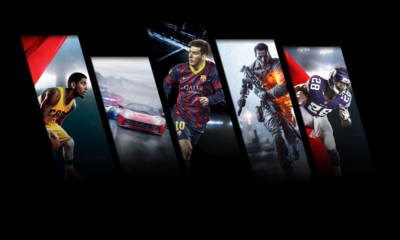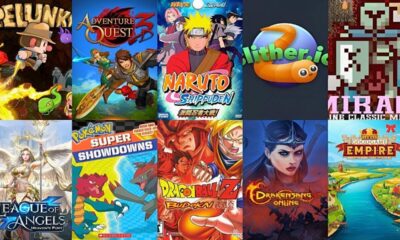Gaming
How Do Microtransactions Impact Gaming?

Microtransactions have gone from being a tiny add-on to becoming the backbone of modern gaming. A decade ago, they were just shiny extras, little cosmetic skins you could ignore if you wanted. Now they shape how games are built, how players behave, and even how long a game stays alive.
They’ve made games cheaper to jump into, but also way more focused on keeping you spending once you’re in. And the ripple effects stretch across almost every corner of the industry.
How They Changed Game Development
Back then, you’d pay once and get the full game. Maybe an expansion or two would drop later, and that was it. These days, studios plan around long-term income streams. The actual “launch” is just the start of an ongoing content treadmill.
Developers are now building entire economies inside their games, complete with battle passes, seasonal drops, endless skins, and boosters. It’s not just for fun; it’s survival. If the cash stops flowing, support stops too. That pressure pushes teams to think about retention and revenue while they’re designing maps, characters, and even difficulty curves.
You can feel it when you play. Some games start slow or hold back content just enough to make the “skip grind” button tempting. It’s clever, but it also shifts design from “make this awesome” to “make this sticky.” Players can tell when a system is made to entertain them versus when it’s made to extract from them, and that tension changes how you approach the game.
Even art teams feel it. They’re not just designing cool cosmetics. They’re designing future products. That turns game development from a creative sprint into a long marketing campaign, and it shows.
How They Mess With Player Habits
Microtransactions don’t just change the games. They change how we play them. Instead of long sessions for the experience, people jump in for a quick round to snag daily rewards or open a loot box. It’s bite-sized play, constantly checking in.
That loop feels a lot like the instant-feedback systems you see in real-money platforms. Online casinos run on the same dopamine hits. Players chase fast outcomes and instant rewards, which is why directories like fastwithdrawal.casino exist to help people find casinos that pay out quickly without dragging their feet. Microtransaction-heavy games use similar tricks, just with virtual prizes instead of cash.
It works because the random reward hit triggers the same buzz that gambling does. That’s why loot boxes are so addictive. Your brain loves surprise wins, even when the prize is just a purple hat for your character.
The downside is that it turns games into chores. You stop exploring and start clocking in, chasing progress bars instead of just messing around and having fun. It can make even the best-designed game feel like a slot machine you’re obligated to pull.
The Weird Mix of Access and Inequality
There’s a big upside, though: way more people can play now. Free-to-play games removed the price wall. Anyone can download and dive in, which keeps communities full and competitive.
But money still finds a way to separate people. The players who spend climb faster, get rare gear, and unlock more options. Everyone else plays catch-up. Even if the stuff is “only cosmetic,” those cosmetics become status. People notice who has the rare skin.
So you get this quiet split between whales and everyone else. Most games try to balance it, but it’s always there in the background. You can see it in lobbies, someone shows up in a full legendary set and immediately gets treated like they’re elite, even if they’ve barely played.
That social pressure is real. Players start to feel like they have to spend just to be taken seriously, which creates a weird cycle where free access draws people in but status pressure pushes them toward paying.
The Shift to Live Service Everything
Microtransactions didn’t just change games. They changed the entire release model. Studios don’t want one-time sales anymore. They want long-running “live service” games they can update forever.
You get new modes, new maps, new events, all year, which is great until the updates become the game’s whole identity. Features get added or removed on a whim. Entire systems get monetized months after launch.
And when the money slows down, the game just dies. Servers shut off, content disappears, and that whole world you invested time in is gone like it never existed.
Players who grew up on older titles still expect games to be “finished.” They want to buy something and keep it forever. But the live service model makes games feel more like subscriptions. Something that can vanish if enough people stop swiping their cards. It creates this low-key anxiety, like you’re renting fun instead of owning it.
How It Shapes Game Design Now
Developers don’t just build games anymore; they build storefronts wrapped in games. Every part of a modern title is planned with monetization in mind from day one.
Progression systems get bottlenecks that nudge players toward buying boosters. Cosmetic pipelines are mapped out months ahead. Even tutorial pacing is designed to hook you long enough to buy your first skin.
It doesn’t kill creativity, but it does twist it. The mission isn’t just “make this fun.” It’s “make this fun enough to make people spend again tomorrow.”
Some devs walk that line gracefully, slipping monetization in without hurting the core experience. Others go all-in, and the game starts to feel like an endless store disguised as a hobby. The difference is obvious the moment you hit a paywall dressed up as a “choice.”
The Way It Warps Player Culture
Microtransactions also changed how we see each other in games. Rare skins and expensive bundles became status markers. People judge each other by what their characters are wearing, not just how well they play.
Clans sometimes recruit based on who’s decked out in top-tier gear. Streamers get judged on how much they’ve unlocked. And slowly, communities shift from celebrating skill to celebrating spending.
It’s not universal, but it’s enough that you can feel it. Talking about what you bought is now just as common as talking about how you played. Some players even avoid certain games entirely because they don’t want to feel like they’re competing with people’s wallets.
That tension, play for fun vs play to flex, sits underneath almost every multiplayer lobby now. It’s subtle, but it shapes how people act, how they talk, and even how long they stick around.
Gaming
Peran Data dan Analitik dalam Pengalaman Sportsbook Online Masa Kini

Taruhan olahraga online telah mengalami perubahan besar dalam sepuluh tahun terakhir. Dahulu, taruhan olahraga lebih banyak mengandalkan insting, kecintaan pada olahraga, atau firasat saat memasang taruhan. Namun, dengan hadirnya platform sportsbook online seperti Taptap bola, proses tersebut berubah total dan kini sangat bergantung pada data dan analitik yang bekerja di balik layar. Mulai dari perhitungan odds hingga taruhan langsung, semuanya dipengaruhi oleh analisis data.
Baik Anda seorang pemain kasual maupun bettor aktif yang rutin terlibat dalam judi bola, memahami peran data dalam lingkungan sportsbook modern menjadi hal yang sangat penting.
Mengapa Data dan Analitik Penting dalam Platform Sportsbook Online
Data kini menjadi tulang punggung setiap sportsbook modern. Berikut alasannya:
- Akurasi Odds
Analitik menggunakan data pertandingan sebelumnya, performa pemain, cedera, hingga faktor cuaca untuk menghasilkan odds taruhan bola yang lebih akurat. - Pasar yang Adil dan Seimbang
Sistem memastikan tidak ada hasil yang diperlakukan secara bias, sehingga tercipta pasar yang adil bagi semua pemain. - Peningkatan Keterlibatan Pengguna
Analisis perilaku pengguna membantu platform mengarahkan fitur dan pasar yang relevan, sehingga pengalaman pengguna menjadi lebih baik.
Tanpa solusi berbasis data, taruhan olahraga online akan lebih menyerupai tebakan semata dan tidak memberikan keadilan bagi para bettor.
Bagaimana Odds Dihitung dalam Sistem Sportsbook Modern
Odds adalah hasil paling nyata dari penerapan analitik di sportsbook. Berikut proses di baliknya:
1. Analisis Data Historis
- Performa tim dan pemain di masa lalu
- Data pertemuan langsung antar tim
- Tren performa musiman
2. Pemantauan Real-Time
- Cedera pemain dan pergantian pemain
- Kejadian langsung seperti kartu merah, gol, atau perubahan momentum
- Pergeseran strategi tim selama pertandingan
3. Probabilitas Berbasis Algoritma
- Odds dihitung secara dinamis untuk taruhan tunggal dan taruhan parlay
- Penyesuaian dilakukan secara langsung sesuai kejadian di lapangan
Proses ini memastikan odds yang ditawarkan kepada pemain tetap adil dan relevan untuk setiap jenis taruhan.
Pengalaman yang Dipersonalisasi: Taruhan Lebih Cerdas
Data tidak hanya memengaruhi odds, tetapi juga personalisasi pengguna:
- Rekomendasi Berbasis Perilaku
- Platform melacak liga dan tim yang sering Anda ikuti
- Saran taruhan disesuaikan dengan minat Anda
- Navigasi yang Lebih Efisien
- Pasar yang sering diakses ditampilkan lebih menonjol
- Pengguna menghabiskan lebih sedikit waktu mencari dan lebih banyak waktu memasang taruhan
- Konsistensi di Banyak Perangkat
- Riwayat taruhan dan preferensi selalu sinkron
- Tidak kehilangan data saat berpindah dari ponsel ke tablet atau desktop
Personalisasi ini membuat Taptap bola terasa lebih ramah pengguna dan efisien.
Live Betting: Analitik yang Bekerja Secara Nyata
Taruhan langsung adalah salah satu fitur paling menarik dalam sportsbook modern dan sepenuhnya digerakkan oleh data:
- Pembaruan Odds Berkelanjutan
- Odds disesuaikan setiap detik berdasarkan kejadian langsung
- Pemain dapat mengambil keputusan dengan informasi terkini
- Dukungan Keputusan Real-Time
- Statistik langsung seperti penguasaan bola, tembakan ke gawang, dan pelanggaran digunakan dalam pasar taruhan bola
- Bettor memiliki pemahaman yang lebih baik tentang risiko dan peluang
- Wawasan Multi-Pertandingan
- Analitik lanjutan memungkinkan perbandingan beberapa pertandingan sekaligus
- Strategi taruhan parlay menjadi lebih matang berkat data gabungan
Live betting menunjukkan bagaimana analitik menciptakan pengalaman yang dinamis dan mendebarkan.
Meminimalkan Risiko dengan Data
Taruhan selalu mengandung risiko, tetapi data membantu mengurangi risiko yang tidak perlu:
- Keputusan yang Lebih Terinformasi
- Pilihan didasarkan pada probabilitas, bukan tebakan
- Taruhan tunggal dan taruhan parlay menjadi lebih terukur
- Transparansi
- Perubahan odds terkait langsung dengan kejadian pertandingan
- Pengguna memahami alasan perubahan, bukan terkejut
- Pencegahan Kesalahan
- Sistem mendeteksi pola tidak wajar atau inkonsistensi
- Menjaga keadilan dan akurasi hasil judi bola
Data tidak menjamin kemenangan, tetapi sangat mengurangi kebingungan dan frustrasi.
Taruhan Bertanggung Jawab Berkat Analitik
Sportsbook modern semakin memanfaatkan analitik untuk mendukung taruhan yang bertanggung jawab:
- Pemantauan Perilaku
- Sistem mendeteksi perubahan drastis dalam aktivitas taruhan
- Peringatan membantu pengguna mengontrol kebiasaan bermain
- Notifikasi yang Disesuaikan
- Peringatan untuk kerugian besar atau taruhan beruntun
- Mendorong pengelolaan bankroll yang lebih baik
- Keterlibatan yang Berkelanjutan
- Pendekatan berbasis data mengurangi taruhan impulsif
- Pengguna lebih cenderung bermain secara sehat dan berkelanjutan
Pendekatan ini membangun kepercayaan jangka panjang antara pengguna dan platform.
Keunggulan Strategis dalam Taruhan Parlay
Taruhan parlay menggabungkan beberapa pilihan dalam satu taruhan, sehingga analitik menjadi semakin penting:
- Perhitungan Probabilitas
- Setiap pilihan memengaruhi odds dan potensi kemenangan
- Model lanjutan menghitung kemungkinan hasil secara akurat
- Alat Visualisasi
- Platform menampilkan rincian risiko dan potensi keuntungan
- Membantu pengguna memahami ekspektasi sebelum bertaruh
- Rekomendasi Parlay yang Dioptimalkan
- Saran berdasarkan data historis dan perilaku pengguna
- Mendorong keputusan yang lebih matang
Membangun Kepercayaan Melalui Transparansi
Analitik berbasis data tidak hanya meningkatkan mekanisme taruhan, tetapi juga membangun kepercayaan:
- Odds yang adil dan penyesuaian logis menunjukkan sistem yang transparan
- Platform seperti Taptap bola memastikan data konsisten di semua perangkat
- Pasar merespons kejadian secara rasional, meningkatkan keyakinan pengguna
Kepercayaan ini mendorong interaksi jangka panjang dan memudahkan pengguna baru.
Melihat ke Depan: Masa Depan Analitik dalam Sportsbook
Peran analitik dalam sportsbook akan terus berkembang:
- Model Prediktif: Algoritma akan semakin akurat memprediksi kemungkinan hasil
- Analisis Perilaku Pengguna: Rekomendasi akan semakin personal
- Integrasi Live yang Lebih Canggih: Tampilan data langsung akan semakin interaktif
Tujuannya tetap sama—membuat taruhan lebih cerdas, adil, dan menarik.
Penutup
Taruhan olahraga online tidak lagi sekadar soal insting dan keberuntungan. Kehadiran analitik di platform seperti Taptap bola membuktikan bahwa di balik odds yang lebih baik, pengalaman personal, live betting, dan taruhan bertanggung jawab, terdapat peran besar data dan analitik.
Bagi siapa pun yang tertarik pada judi bola, taruhan bola, atau taruhan parlay, memahami pentingnya analitik dapat meningkatkan pengalaman sportsbook secara signifikan. Analitik memang tidak menjamin kemenangan, tetapi memberikan kejelasan, keadilan, dan kepercayaan—tiga elemen penting untuk pengalaman taruhan yang memuaskan.
Gaming
Exploring the Latest Trends in Online Sports Betting

Are you ready to step up your online betting game?
The sports betting landscape is evolving quicker than ever before. From technological advancements to regulatory shifts and player habits, many changes are influencing the way wagers are being placed.
Let’s break down what you need to know.
By learning about new betting trends, players can gain a competitive edge when it comes time to deciding where and how they want to wager their hard-earned money.
This article outlines the most popular online betting trends moving forward. We’ll also share what you should consider when picking your platforms of choice.
Let’s get started!
The Rise Of Online Betting
The online segment of the sports betting industry is booming.
In 2024, the global market reached USD 100.9 billion and is expected to grow further to USD 187.39 billion by 2030. That’s almost double what it is today.
Why the massive growth? Odds are you know the answer.
The increased legalization of sports betting around the world, coupled with the widespread accessibility to smartphones and high-speed internet connectivity has enabled many more people to place bets than ever before.
Let’s put it into perspective…
Not too long ago you would need to visit a land-based location to place a bet. Today anyone with a smartphone can bet from the comfort of their couch. This level of convenience has introduced millions of new players to the betting industry.
The numbers don’t lie. The global market size reached 181.9 million online bettors in 2024. This number is forecasted to grow to 274.4 million users by 2030. We are witnessing a massive influx of new bettors into the online market each year.
With new bettors comes great responsibility. Now more than ever players should be taking their time to research a platform before signing up. In Korea there is a term known as 먹튀 translating to literally “eat and run”. These are betting sites that take players’ deposits without granting withdrawals. Verifying these sites with a scam checker and reading through online casino reviews can aid in weeding out any illegitimate platforms before betting real money. Prioritize gaming safely first.
Mobile Betting Dominates
Gambling on sports games using mobile devices isn’t a new trend.
It’s the present trend.
Mobile phones made up 78% of all online sports wagers placed throughout the world in 2024. With advancing technology, this number will continue to rise.
What’s fueling mobile domination?
- Convenience – Bettors can place wagers from anywhere at any time
- Improved Design – Betting apps are focused on developing better user experiences
- Live Streaming – Many mobile betting apps offer integrated live game streams
- Rapid Transactions – Mobile wallet options allow for instant deposits and withdrawals
Desktop vs mobile betting is no longer a competition. Sure, desktop platforms still maintain a majority market share at roughly 56% due to the typically more in-depth analysis required when betting on sites. But with mobile betting growing at an estimated rate of 13.87% through 2030, it’s hard to argue against picking up your smartphone to bet on your favorite teams.
Betting pros recommend taking the time to test out a betting platform’s mobile application before signing up. If the app isn’t user-friendly, look elsewhere. Sportsbooks know where the majority of their traffic comes from and are investing heavily in mobile websites and applications.
Live Betting Revolutionizes The Industry
One of the biggest segments shifting the online betting industry is live betting (also known as in-play betting).
Betting before a sports game is great…but what about betting during?
These days bettors want options while a game is in-progress. They want to be able to react to any situation that may occur and adjust their bets accordingly.
Let’s look at some numbers:
Live betting accounted for close to 60% of online sports betting’s market share. Not only is it the largest segment of the industry, but it is growing at a quicker rate than traditional betting.
The reason? Live betting is more exciting. No longer do fans have to sit on their hands while watching a game. With live betting they can hop into the action at every point of the game.
Here are some tips to live bet responsibly:
Do your pre-game homework. Live bets are still bets. Research the teams involved, know the matchups, and look for likely outcomes before the game starts.
Set a budget. Live betting is addictive. You can easily lose track of time and money when a game is right in-front of you. Decide how much you are willing to bet before the game and stick to your number.
Stay on trustworthy platforms. When live betting your money is only as good as the sportsbook you are using. Ensure you are playing on platforms that process bets quickly. Nothing is more frustrating than seeing an opportunity to place a bet, only for your betting platform to crash or experience delayed connection.
How To Verify Safe Betting Platforms
Don’t overlook this section. It might just save you some money.
Here’s reality:
Just because a sportsbook operates online doesn’t mean they have your best interests in mind. There are plenty of legitimate businesses striving to provide bettors with a great experience and better odds. However, there are also untrustworthy organizations out there looking to scam you out of your hard-earned cash.
So how can you weed out the good from the bad? Here are some tips:
Look for licensing info. All legitimate online sportsbooks display their license information. This ensures the sportsbook is operating under regulation.
Read site reviews. This can be done by reading through numerous online casino testimonials. If you see the same complaints about a platform over and over again, such as slow payouts or bad customer service, you know this isn’t the platform for you.
Understand the terms. Legitimate betting sites outline their bonus terms, withdrawal policies, and rules in simple terms. If you have to dig around the site to understand the fine print, that should raise a red flag.
Check payment methods. Ensure the site uses encrypted transactions. You should also feel comfortable with their payment processors.
Contact their support. Don’t be afraid to ask questions before making a deposit. If their customer service responds quickly and efficiently, that’s a good sign.
Future Of Betting Trends
The online sports betting industry is here to stay.
As it continues to grow, we are likely to see plenty of new trends develop.
Here are some to look out for:
Artificial Intelligence (AI) – Sportsbooks are starting to implement AI to better the overall user experience. Betting recommendations and odds may start to become personalized based on the bets you place.
Blockchain – Some online sportsbooks are starting to allow cryptocurrency deposits and offer transparency through blockchain technology. This may change how we make transactions in the future.
Esports – Competitive video gaming continues to rise in popularity as a category. More and more bettors will look to wager on games such as Dota 2, League of Legends, Fortnite, and many others.
Regulation – With the massive growth of the sports betting industry, you can bet (pun intended) that governments will step in to regulate how sportsbooks can operate. We may start to see more standardized rules.
Bettors benefit from knowing what lies ahead. We’ve got you covered on what’s happening now.
Wrapping Things Up
Online betting is continuing to evolve at a rapid pace.
We’ve learned that mobile betting dominates today’s sports betting environment with live betting continuing to take a large chunk of the market share. As technology advances you can expect these trends to transform even further.
Let’s review:
- Online sports betting will continue to grow and is expected to nearly double in market size by 2030.
- The majority of online bets are placed through mobile devices
- Live betting now makes up the largest percentage of online betting
- Do your research when picking betting sites and platforms
- Keep an eye out for these trends as they continue to evolve
Knowledge is power. In this case, being informed on the latest online betting trends can give you the edge you need to make smart betting decisions. Always research the sportsbooks you plan on using and bet responsibly. Never wager more than you can afford to lose.
Gaming
Why Table Rules Matter More in Online Blackjack Than Many Players Realize

Online blackjack is typically regarded as a unadorned online rewriting of a classic, timeless gambling classic. Cards get shuffled together, choices get made, and the end result appears to be somewhat recognizable. But beneath this veneer of simplicity lies a stratum that passively dictates outcomes far more than most players might imagine: table rules. In online blackjack, the subtle difference in rules can make all the difference in the house edge and the long-term results that come out of it, not to mention the playing experience in general.
Understanding such differences becomes important in any player’s mind who decides to play blackjack online, with an ability to host multiple tables and various formats at one time.
The Illusion of Identical Blackjack Tables
At first glance, many virtual tables of blackjack would seem indistinguishable from any table. Slightly different interfaces, perhaps, but the core mechanics remain constant. With these similarities, many players just assume all tables would have equal conditions.
In all actuality, there are variations of the rules with different platforms plus within the same casino. Such differences are not as obvious as the card graphics or the betting layout, yet they have a significant impact on the outcomes over a long period of time. For an Internet-based blackjack game, the rounds may involve hundreds of hands.
Payout Structures and Their Hidden Impact
One of the important rules of tables in online gambling blackjack refers to how blackjacks are paid. Traditional blackjack pays 3:2 when a player is dealt a natural blackjack. On some online tables, though, the payout for this is 6:5.
Although this might be a small difference, mathematically it increases the house edge noticeably. During a long session, reduced payouts erode potential winnings even when an optimal strategy is applied. This detail often goes unnoticed by many players, who usually study tables for the minimum bet or more aesthetically pleasing visuals.
In blackjack online, payout structure is often the single most influential rule on expected returns.
Dealer Rules Change the Odds
Dealer behavior is another critical factor. Some tables have the dealer stand on soft 17, while others hit. This one rule change impacts the house advantage and shifts strategy.
It is when the dealer hits on soft 17 that the casino gets this slight edge, which, although it might not be apparent in short sessions, may be substantial in extended online blackjack play.
Understanding dealer rules allows players to align strategy with table conditions rather than relying on generalized assumptions.
Deck Count and Shuffle Frequency
Unlike physical casinos, internet blackjack often makes use of continuous shuffling machines or very frequent virtual reshuffles. The decks in play vary from single deck to double deck to six decks.
The number of decks affects how high the house’s edge and certain techniques should be. While deck counting is not viable in most online blackjack environments due to constant shuffling, deck count still affects expected outcomes.
Players who review deck information before joining a table gain a clearer picture of the game’s structure and fairness.
Doubling Down and Splitting Restrictions
Rules on doubling down and the splitting of hands can really make quite a bit of difference in terms of flexibility. While some tables allow doubling on any two cards, others only restrict doubling to specific totals. Similarly, splitting rules vary, particularly for aces.
These limitations influence both strategy and risk management. Tables with restrictive rules reduce the player’s ability to capitalize on favorable situations.
When choosing to play blackjack online, understanding these rules helps avoid tables that quietly limit strategic options.
Side Bets: Optional but Influential
Side Bets commonly appear as a feature of online gambling blackjack, mostly as an exciting addition to the classic game. While they are optional, they may affect player behavior and bankroll management.
Most side bets have much larger house edges than the underlying game. Unwittingly, the player may easily divert his attention away from the optimal strategy for playing blackjack.
Within blackjack online, side bets should be trodden carefully and as a form of entertainment rather than a tool to further strategic options.
Speed of Play and Decision Pressure
Another factor overlooked by many players in internet blackjack is the game speed. The faster tables allow more hands per hour, increasing both possible gains and losses.
Higher hand volume amplifies the effects of table rules. Favorable rules become more valuable over time, while unfavorable rules shrink bankrolls faster.
This relationship between speed and rules explains why table selection matters more online than in slower, physical environments.
Software Variations and Rule Transparency
Different software providers implement blackjack rules differently. While reputable platforms disclose rules clearly, players often skip this information in favor of jumping straight into play.
This habit leads to confusion when results differ from expectations. Clear rule transparency is a hallmark of trustworthy online blackjack platforms.
Educational resources such as Blackjack Info emphasize the importance of reviewing rule sets before committing real money.
Why Beginners Are Most Affected
Negative table rules especially affect new players. With no prior experience, one might easily think that all blackjack games are of the same nature; in online gambling blackjack, such a notion might cost a gambler his possible win.
Having the ability to recognize favorable rules suits the development of strong habits well. Having this sense of knowledge, indeed, turns black jack from a guessing game into an organized game.
Choosing the Right Online Blackjack Table
Therefore, in picking a table, one should not be concerned with only one factor-minimum bets. Also consider payout ratio, dealer rules, deck count, and splitting options to paint a better picture of the quality of the game.
Those players who always choose the favorable tables have much easier sessions and more predictable results. On the other hand, ignoring these details leads to frustration and unpredictable results.
The guides available through Blackjack Info have given structured breakdowns that help simplify this for both new and experienced players.
Long-term success is based on awareness of the rules
Luck is what determines short sessions, while rules determine the long-term result. In online blackjack, with the speed and ease of play, the long-term exposure occurs within a very short period of time.
Table rules quietly shape every decision and every result. Recognizing their impact finally shifts the attention away from myths to measurable factors.
Final Thoughts
Online blackjack rewards attention to detail. While cards and strategy receive most of the focus, table rules are quietly pulling the strings that determine how those strategies perform.
For any player who will opt to play blackjack online, the table rules are not optional; they are necessary. Knowledge of payouts, dealer behavior, deck count, and betting options transforms online blackjack from a casual game into a controlled, informed experience.
For any other information about rule variations, strategy, or online sites to be trusted, Blackjack Info remains a good source for players seeking clarity about what’s going on in the ever-changing world of online blackjack.
-

 Finance3 years ago
Finance3 years agoProfitable Intraday Trading Advice For Novices
-

 Gaming2 years ago
Gaming2 years agoPixel Speedrun Unblocked Games 66
-

 Gaming3 years ago
Gaming3 years agoSubway Surfers Unblocked | Subway Surfers Unblocked 66
-

 Internet3 years ago
Internet3 years agoWelcome to banghechoigame.vn – Your One-Stop Destination for Online Gaming Fun!
-

 Gaming3 years ago
Gaming3 years agoMinecraft Unblocked Games 66 | Unblocked Games Minecraft
-

 Gaming3 years ago
Gaming3 years agoGoogle Baseball Unblocked | Google Doodle Baseball Unblocked 66
-

 Internet3 years ago
Internet3 years agoPremium Games Unblocked: Unleash Your Gaming Potential
-

 Gaming3 years ago
Gaming3 years agoTunnel Rush Unblocked | Tunnel Rush Unblocked 66





























